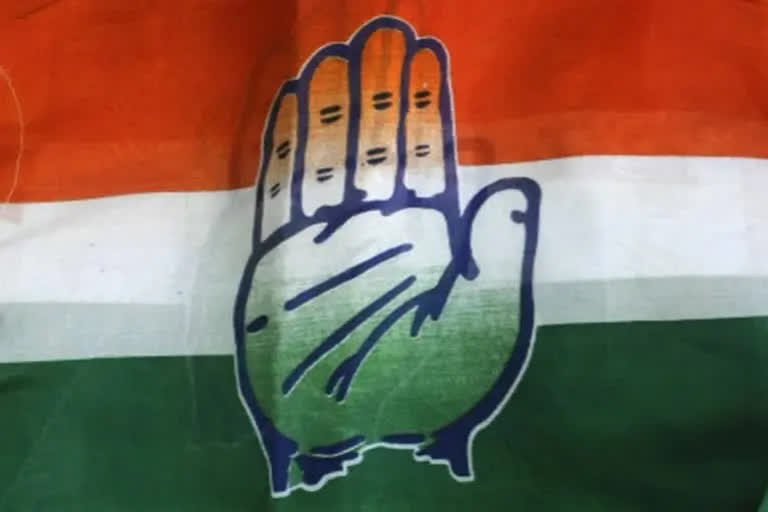New Delhi: The Congress is going through a fine comb to select the candidates for the December 1 and 5 Gujarat assembly polls and is placing a strong emphasis on the loyalty factor before going public with the names.
Congress president Mallikarjun Kharge on Friday will chair a meeting of the Central Election Committee after which the first list of candidates may be out soon, said informed AICC sources.
Over the past weeks, the party’s screening committee, headed by Kerala veteran Ramesh Chennithala, held marathon sessions to shortlist the candidates suggested by the state unit.
The CEC, chaired by Kharge and attended by former president Sonia Gandhi, met on October 26 to discuss the potential candidates in the high-stakes elections.
The loyalty factor has always been considered during ticket distribution but has come into sharper focus this time as Congress lost several lawmakers to the BJP over the past five years. The Congress which had won 77/182 seats in the 2017 polls, is down to 63 at present.
“In my personal view, loyalty of a candidate should be a key factor in deciding tickets. Of course, winnability and caste equations are also considered,” senior state leader Dipak Babaria told ETV Bharat.
According to Babaria, the MLAs who left the Congress in the past five years, fell to the allurements of the ruling BJP as well as pressure after various central agencies came after them.
Also read: Unlike previous polls, 2022 Gujarat fight is over bijli, pani, sadak: Congress
“The BJP does this as a routine. They did the same in Madhya Pradesh, Goa and in several other places. There may be allurements that can shake the faith of an individual. In the end, only the person’s conscience would guide him,” Babaria, a former AICC in charge of MP, said.
The Congress has been out of power in Gujarat for 27 years and has pitched the December polls about change.
However, the grand old party has come under pressure from the entry of AAP into the fray.
As a result, the Congress managers are keeping in mind the fact that both the AAP and the BJP might be waiting to lap up the Congress leaders who may turn rebels if denied a ticket.
Besides, both the BJP and AAP may put up dummy candidates, which could end up benefiting the rival parties indirectly and hurt the Congress, the strategists said.
“All these factors would have to be kept in mind before tickets are finalized,” said a senior AICC functionary.
“That is the reason why we could not announce the first list earlier despite claims. In fact, we had been telling our leaders that if they wanted to leave us they could as we did not want any persons who are not committed to the Congress ideology,” he said.
Also read: From scribe to AAP's Gujarat CM candidate, Isudan Gadhvi man of the moment
In general, the Congress is likely to give weightage to most of the sitting MLAs, who stayed with the party during the difficult times and did not ditch the organization, while also giving chance to the younger lot and women.
“Rahul Gandhi had said that he wants to see many younger leaders and women as candidates. Plus, we also wanted to try out new faces in the 50 urban seats that the party has not won for decades. This seems like a good strategy in a tough election and every seat counts,” said a senior Steering Committee member.
Rahul had also said that those who took an active part in the various agitational programs would get a preference during ticket distribution and that the party would not merely go by the seniority of a leader to entrain his or her claim for a party nomination.
Taking a cue from the former party chief, the state unit has invited applications from the aspirants and received around 3-4 nominations per seat.
Earlier, AICC in-charge Raghu Sharma had said that the party would announce the names of 40 most difficult urban seats first but somehow the plan got delayed.
Most of these urban seats fall under the cities like Ahmedabad (12), Surat (eight), Vadodara (five), Rajkot (three), Bhavnagar (three) and Jamnagar (three).
To be sure about the aspirants the screening committee took feedback from the block-level teams before shortlisting the candidates. Chennithala also had a detailed conversation with the state leaders who had a view over the suggested names.
During the consultations, a view was expressed strongly by some state leaders that the party should not field candidates who are above 70 years to counter the entry of AAP, which has a history of fielding new, young and unassuming persons as their candidates in both Delhi and Punjab.
“It was the risk of losing our rebels which delayed this plan. We want to ensure an element of surprise in our list and prefer to keep the suspense on,” said an AICC general secretary. “We take pride in being a democratic organization. Hence, we also have to keep the whole process transparent,” he added.



